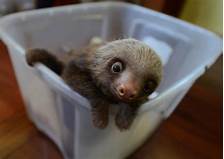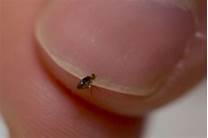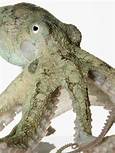Can You Have Sloths as Pets?
Sloths are fascinating creatures with their slow movements, sleepy demeanor, and adorable appearance. It's no wonder why many people consider having them as pets. However, before you make a decision, it's essential to understand the challenges and considerations of sloth ownership.

Are Sloths Legal to Own?
1. Legality Varies: The legality of owning a sloth as a pet varies greatly across countries and regions. In some places, it's completely illegal, while in others, it may require special permits or licenses.
2. Check Local Laws: Before considering a sloth as a pet, thoroughly research and understand your local laws and regulations regarding sloth ownership.
Habitat and Care Requirements
1. Specialized Habitat: Sloths require a specialized habitat that closely mimics their natural environment. This includes a large enclosure with plenty of climbing space, a warm and humid environment, and a specialized diet.
2. Dietary Needs: Sloths primarily eat leaves, fruits, and vegetables. Their diet is complex and requires careful preparation to ensure they receive all the necessary nutrients.
3. Veterinary Care: Sloths have unique health needs that require specialized veterinary care. Finding a vet experienced in treating sloths is crucial for their well-being.
Behavioral Considerations
1. Solitary Animals: Sloths are typically solitary animals and may not thrive in a home environment with other pets or excessive human interaction.
2. Inactivity: Sloths are known for their slow movements and spend a significant amount of time resting or sleeping. This may not be suitable for those expecting a playful and interactive pet.
3. Specialized Needs: Sloths require a lot of specialized care and attention. They can be prone to stress and require a patient and understanding owner.
Ethical Concerns
1. Conservation Status: Some sloth species are threatened or endangered in the wild. Owning a sloth as a pet may contribute to the demand for these animals and potentially harm wild populations.
2. Exotic Pet Trade: The exotic pet trade often involves the mistreatment and improper care of animals. Supporting this trade by purchasing a sloth as a pet may contribute to these unethical practices.
3. Wild Animals vs. Domestic Pets: Sloths are wild animals, and keeping them as pets may deprive them of their natural habitat and social interactions, which can lead to psychological distress.
Alternatives to Owning a Sloth as a Pet
1. Learn About Sloths: Instead of owning a sloth, consider learning more about them through books, documentaries, or visiting zoos or sanctuaries where you can observe them in a safe and ethical environment.
2. Support Conservation Efforts: If you're passionate about sloths, you can support their conservation by donating to organizations that work to protect their natural habitats and combat the illegal pet trade.
3. Volunteer at Sanctuaries: Volunteering at a sloth sanctuary or rescue center is a great way to interact with these animals directly, learn about their care, and contribute to their well-being.
In conclusion, while sloths are fascinating creatures, they are not suitable pets for most individuals. Their specialized needs, complex diets, and potential legal and ethical concerns make them challenging and potentially harmful to keep as pets. Instead, consider alternative ways to appreciate and support these amazing animals from a distance.
Declaration: All article resources on this website, unless otherwise specified or labeled, are collected from online resources. If the content on this website infringes on the legitimate rights and interests of the original author, you can contact this website to delete it.



